In a powerful demonstration of community advocacy, several members of the Prader-Willi syndrome (PWS) community recently met with Representative Angie Craig (D-MN) to share their stories and advocate for those living with PWS. This meeting in Minnesota, which was scheduled as a follow-up to PWSA | USA’s 2024 D.C. Fly-In, highlighted the importance of ongoing congressional support for PWS families.
For Jen Andrews, mom to seven-year-old Josephine (affectionately known as Jojo), this moment marked a significant milestone in her advocacy journey. “I recently had the honor of meeting with Congresswoman Angie Craig’s health staffer in Washington, D.C. on two occasions, and both experiences were marked by her strong support for our cause,” Jen shared. “Her commitment was further demonstrated when she signed a crucial letter of congressional support to the FDA for PWS.” What made this follow-up meeting even more impactful was that Congresswoman Craig expressed a desire to meet directly with families affected by PWS in Minnesota.
For the local meeting, Jen decided to bring Jojo along, allowing her daughter to take an active role in advocating for herself and the PWS community. “Until now, I hadn’t brought Jojo to D.C. due to concerns about the long day and the potentially challenging content of our discussions. Jojo has always contributed her thoughts, which I’ve shared with lawmakers, but this time, she wanted to take a more active role,” she said. The night before, Jojo practiced a short speech she had written. In a room full of adults, including a U.S. Congresswoman, Jojo confidently spoke on behalf of herself and others living with PWS. “Her courage and eloquence were truly inspiring, and I couldn’t be prouder of her,” Jen added.
This meeting not only allowed Jen and her daughter to share their journey but also allowed other families to voice their stories and concerns. Denise Servais and her daughter Maya, who also has PWS, attended the meeting and found the experience both empowering and validating. “Congresswoman Craig was receptive to our concerns and asked thoughtful questions,” Denise said. “Knowing that we are advocating for the people we care about with PWS made the experience all the more meaningful.” Maya, echoing her mother’s sentiments, shared, “I got to tell (Rep. Craig) about PWS and how it’s hard to be hungry all the time.”
PWSA | USA’s Medical/Research Coordinator Lynn Garrick (mom to John living with PWS) attended the meeting alongside her son Alex, who shared the sibling perspective. “Meeting with members of Congress to address the health disparities and struggles that individuals and families of rare disorders face is an important part of advocacy that directly benefits our community, both locally and nationally,” Lynn emphasized. “Having a group of parents, individuals with PWS, and siblings meet with Congresswoman Craig helped to present a good picture of what those with PWS face with new drug development, access to knowledgeable providers, education barriers, and the impact on the family as a whole.”
Congresswoman Craig’s genuine interest in the challenges faced by PWS families resonated deeply with the attendees. After the meeting, she shared a post on Facebook, writing: “Today I met with Minnesotans who live with Prader-Willi syndrome to learn firsthand the challenges they face, how we can better address their needs in Congress, and ensure Americans with PWS can access the reliable health care they need.”
These in-person meetings represent a significant step forward in raising awareness for PWS in our home states and on Capitol Hill. With advocates like Jen, Denise, Lynn, and their children stepping up to share their stories, and with the continued support of congressional allies like Representative Craig, the PWS community is making progress toward a future where their voices are heard and their needs are addressed.
As Jen reflected on the experience, she expressed gratitude for the support of their local advocacy team: “I’m so proud of and grateful for the team Minnesota has brought to PWS advocacy. And now, my daughter herself is part of that team.”
The Minnesota PWS community’s tireless efforts, combined with the willingness of legislators like Rep. Angie Craig to listen and act, offer hope for continued advancements in healthcare access, education, and treatment for individuals living with PWS.
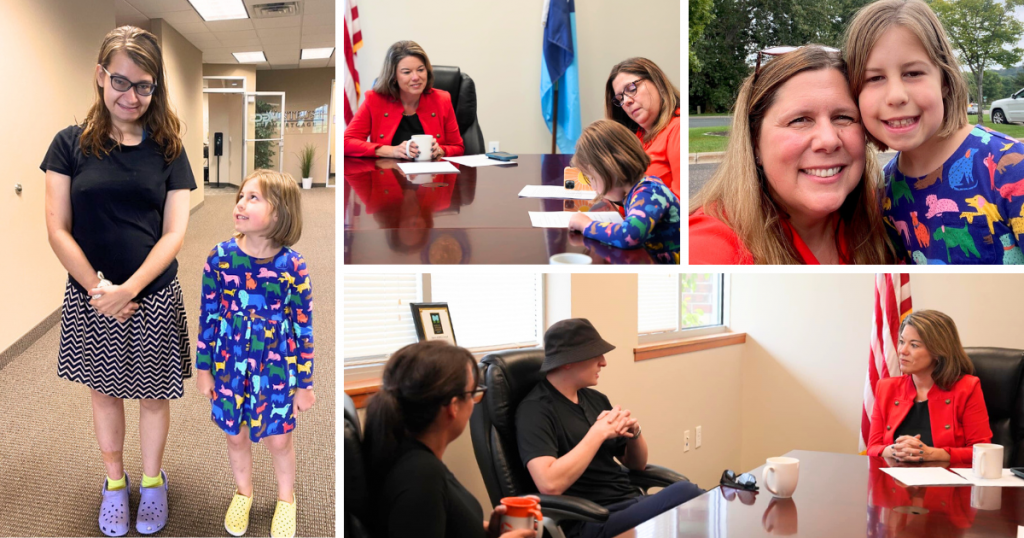
Share this!

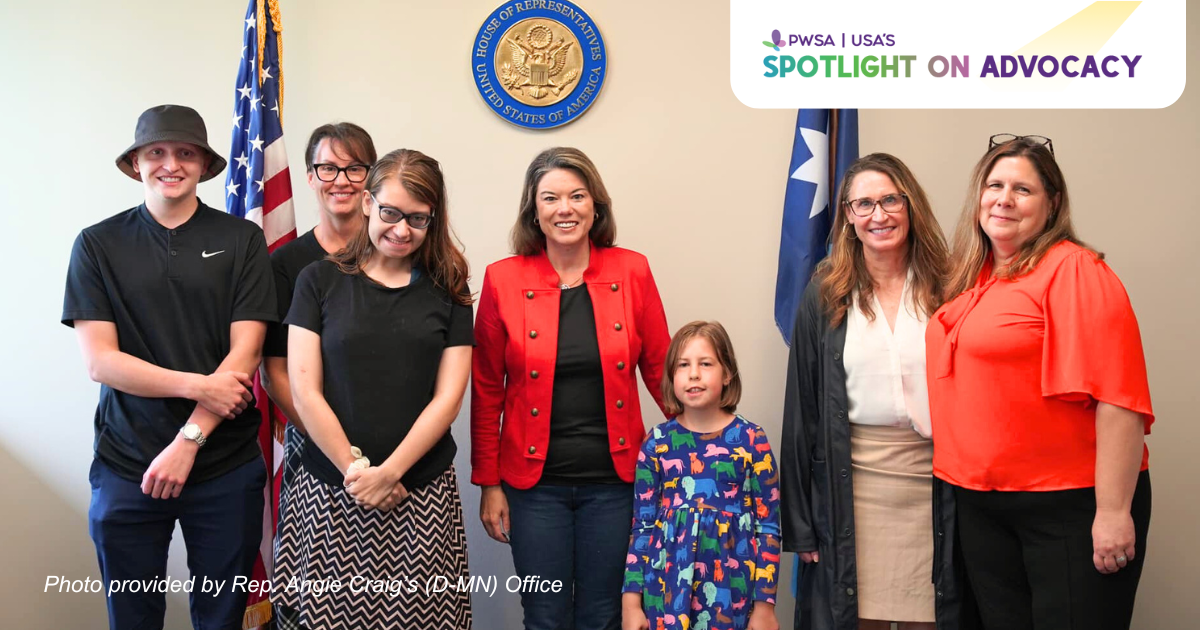
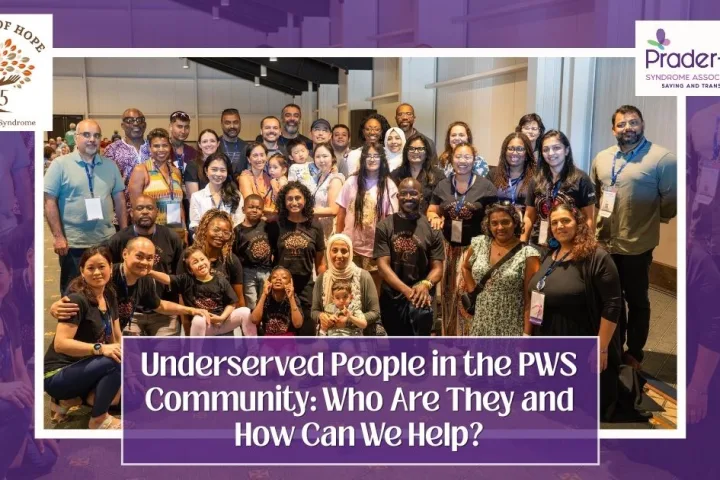
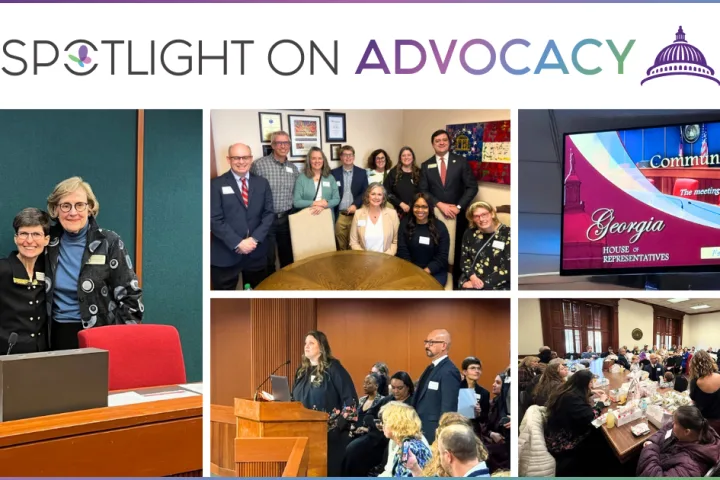
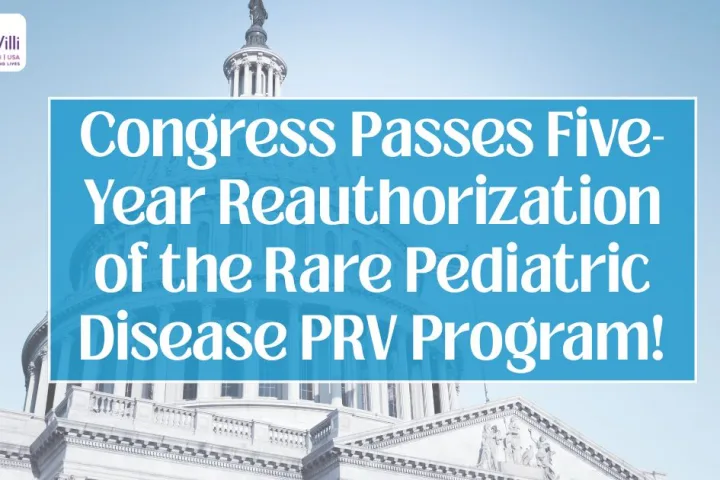
 Perry A. Zirkel has written more than 1,500 publications on various aspects of school law, with an emphasis on legal issues in special education. He writes a regular column for NAESP’s Principal magazine and NASP’s Communiqué newsletter, and he did so previously for Phi Delta Kappan and Teaching Exceptional Children.
Perry A. Zirkel has written more than 1,500 publications on various aspects of school law, with an emphasis on legal issues in special education. He writes a regular column for NAESP’s Principal magazine and NASP’s Communiqué newsletter, and he did so previously for Phi Delta Kappan and Teaching Exceptional Children. Jennifer Bolander has been serving as a Special Education Specialist for PWSA (USA) since October of 2015. She is a graduate of John Carroll University and lives in Ohio with her husband Brad and daughters Kate (17), and Sophia (13) who was born with PWS.
Jennifer Bolander has been serving as a Special Education Specialist for PWSA (USA) since October of 2015. She is a graduate of John Carroll University and lives in Ohio with her husband Brad and daughters Kate (17), and Sophia (13) who was born with PWS. Dr. Amy McTighe is the PWS Program Manager and Inpatient Teacher at the Center for Prader-Willi Syndrome at the Children’s Institute of Pittsburgh. She graduated from Duquesne University receiving her Bachelor’s and Master’s degree in Education with a focus on elementary education, special education, and language arts.
Dr. Amy McTighe is the PWS Program Manager and Inpatient Teacher at the Center for Prader-Willi Syndrome at the Children’s Institute of Pittsburgh. She graduated from Duquesne University receiving her Bachelor’s and Master’s degree in Education with a focus on elementary education, special education, and language arts. Evan has worked with the Prader-Willi Syndrome Association (USA) since 2007 primarily as a Crisis Intervention and Family Support Counselor. Evans works with parents and schools to foster strong collaborative relationships and appropriate educational environments for students with PWS.
Evan has worked with the Prader-Willi Syndrome Association (USA) since 2007 primarily as a Crisis Intervention and Family Support Counselor. Evans works with parents and schools to foster strong collaborative relationships and appropriate educational environments for students with PWS. Staci Zimmerman works for Prader-Willi Syndrome Association of Colorado as an Individualized Education Program (IEP) consultant. Staci collaborates with the PWS multi-disciplinary clinic at the Children’s Hospital in Denver supporting families and school districts around the United States with their child’s Individual Educational Plan.
Staci Zimmerman works for Prader-Willi Syndrome Association of Colorado as an Individualized Education Program (IEP) consultant. Staci collaborates with the PWS multi-disciplinary clinic at the Children’s Hospital in Denver supporting families and school districts around the United States with their child’s Individual Educational Plan. Founded in 2001, SDLC is a non-profit legal services organization dedicated to protecting and advancing the legal rights of people with disabilities throughout the South. It partners with the Southern Poverty Law Center, Protection and Advocacy (P&A) programs, Legal Services Corporations (LSC) and disability organizations on major, systemic disability rights issues involving the Individuals with Disabilities Education Act (IDEA), Americans with Disabilities Act (ADA), and the federal Medicaid Act. Recently in November 2014, Jim retired.
Founded in 2001, SDLC is a non-profit legal services organization dedicated to protecting and advancing the legal rights of people with disabilities throughout the South. It partners with the Southern Poverty Law Center, Protection and Advocacy (P&A) programs, Legal Services Corporations (LSC) and disability organizations on major, systemic disability rights issues involving the Individuals with Disabilities Education Act (IDEA), Americans with Disabilities Act (ADA), and the federal Medicaid Act. Recently in November 2014, Jim retired.